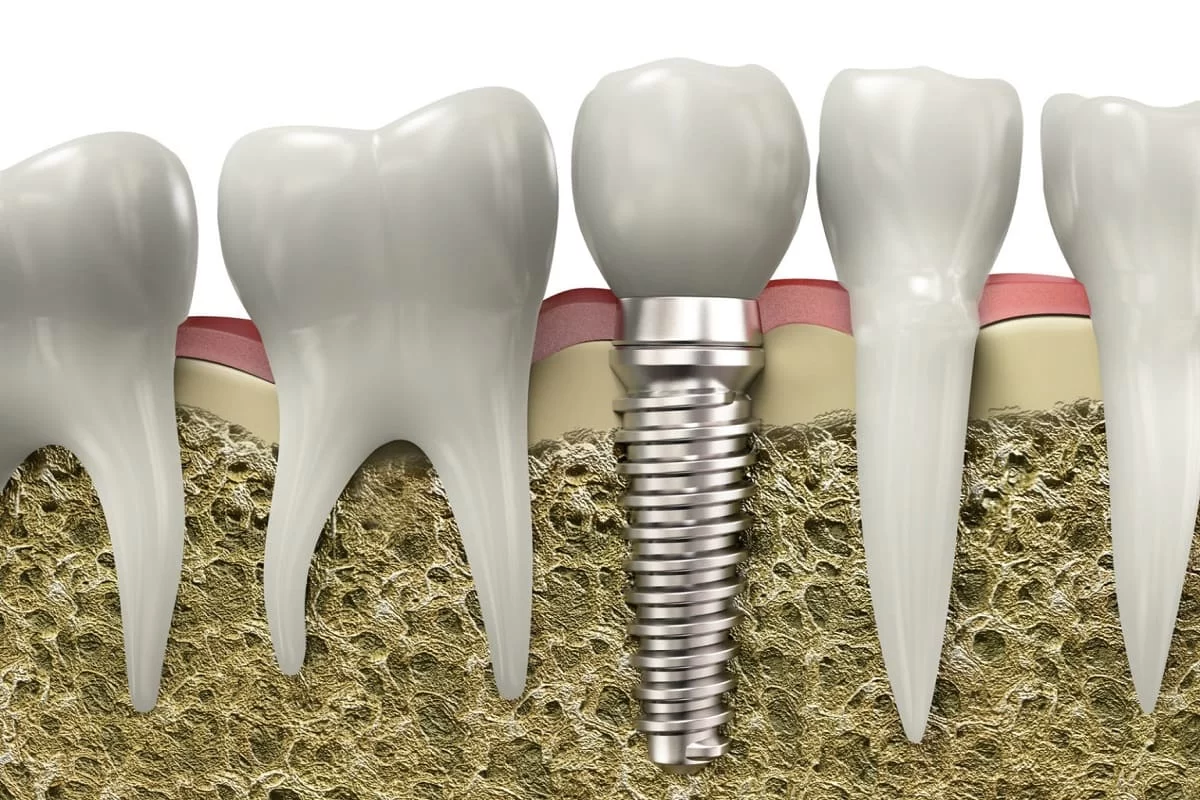
Best Practices for Maintaining Your Dental Implants: Essential Tips for Longevity
- Why Maintenance is Crucial for Dental Implants
- Oral Hygiene Practices for Dental Implants
- The Importance of Regular Dental Checkups
- Lifestyle Factors That Affect Implant Longevity
Why Maintenance is Crucial for Dental Implants
Dental implants are a remarkable solution for missing teeth, offering long-lasting results when properly cared for. However, just like natural teeth, dental implants require maintenance to ensure their longevity and functionality. Without the right care, implants can face issues like gum disease, infection, or even failure. That’s why understanding and following the best practices for maintaining your dental implants is essential.
The first thing to keep in mind is that dental implants are made to last a lifetime, but only if they are maintained correctly. The materials used in implants are durable, but the surrounding tissues, especially the gums, are vulnerable to infection and inflammation. Regular care helps keep your implants stable, functional, and aesthetically pleasing for years to come.
Oral Hygiene Practices for Dental Implants
Maintaining proper oral hygiene is one of the most important steps you can take to care for your dental implants. Here’s how you can ensure your implants stay healthy:
1. Brushing and Flossing – Just like natural teeth, it’s crucial to brush your implants at least twice a day. Use a non-abrasive fluoride toothpaste and a soft-bristled toothbrush to clean around the implant and surrounding gum area. Flossing is equally important—make sure to floss around the implant and the surrounding gums to remove any food particles or plaque buildup.
2. Use an Implant-Specific Toothbrush – There are toothbrushes specifically designed for implant maintenance. These often have softer bristles and more targeted designs to help clean around the implant without damaging it.
3. Antibacterial Mouthwash – Using an antibacterial mouthwash can help reduce plaque and bacteria buildup, lowering the risk of infection around the implant. Consult with your dentist to find a mouthwash that’s safe for implants.
4. Avoid Abrasive Products – Avoid using overly abrasive toothpaste or dental tools that might scratch the surface of the implant. Scratches can trap bacteria, increasing the risk of gum disease and implant failure.
By maintaining a consistent and effective oral hygiene routine, you can significantly extend the lifespan of your dental implants.
The Importance of Regular Dental Checkups
Regular dental checkups are a cornerstone of maintaining your dental implants. Even if you feel like everything is going fine, routine visits to your dentist allow for early detection of potential issues.
1. Professional Cleanings – During your dental visits, your dentist or hygienist will professionally clean your implants to remove plaque and tartar buildup that your regular brushing and flossing might miss. This is critical for preventing infections and gum disease.
2. Implant Monitoring – Your dentist will also check the stability of the implant, looking for any signs of gum recession, infection, or loosening. If any issues are detected early, they can often be addressed before they become serious problems.
3. X-Rays – Periodic X-rays are important for monitoring the health of the bone around your implant. This helps your dentist identify potential problems with the implant’s integration into the jawbone.
Make sure to schedule checkups at least every 6 months, or as recommended by your dentist, to ensure that your implants are performing at their best.
Lifestyle Factors That Affect Implant Longevity
Your lifestyle can play a significant role in the success of your dental implants. Here are some key factors to consider:
1. Diet – A healthy diet rich in vitamins and minerals is essential for the health of your implants and gums. Avoid excessive sugary or acidic foods that can cause plaque buildup and contribute to gum disease.
2. Smoking – Smoking can significantly impair the healing process after implant placement and increase the risk of implant failure. If you smoke, it’s highly recommended that you quit to ensure the long-term success of your implants.
3. Teeth Grinding – If you grind your teeth at night (bruxism), it can put undue pressure on your implants and increase the risk of damage. If you suspect you grind your teeth, talk to your dentist about a custom night guard to protect your implants.
4. Regular Exercise – While regular exercise is great for overall health, be cautious when engaging in high-impact sports. If you participate in contact sports, consider wearing a mouthguard to protect your implants from injury.
By making healthy lifestyle choices, you can give your dental implants the best chance of lasting a lifetime.
If you want to ensure your dental implants remain in great condition for years to come, visit [Dentistry Toothtruth](https://familydentistryonline.net) for more expert advice on implant care and the best oral health products available to support your implants.







 Odyssey Dental4.0 (197 review)
Odyssey Dental4.0 (197 review) Spartan Dental4.0 (222 review)
Spartan Dental4.0 (222 review) Crown Council Inc5.0 (28 review)
Crown Council Inc5.0 (28 review) Sony Thomas, DDS Arcadia Endodontics4.0 (8 review)
Sony Thomas, DDS Arcadia Endodontics4.0 (8 review) Pearl Family Dental Care4.0 (123 review)
Pearl Family Dental Care4.0 (123 review) Motto Clear Aligners0.0 (0 review)
Motto Clear Aligners0.0 (0 review) The Importance of Oral Health Education During Pregnancy for a Healthy Pregnancy
The Importance of Oral Health Education During Pregnancy for a Healthy Pregnancy Best Tips for Brushing Your Teeth Properly for Healthy Gums: Essential Techniques for Oral Health
Best Tips for Brushing Your Teeth Properly for Healthy Gums: Essential Techniques for Oral Health Why Skipping Dental Checkups Can Lead to Bigger Oral Health Problems
Why Skipping Dental Checkups Can Lead to Bigger Oral Health Problems Advantages of Porcelain Dental Restorations
Advantages of Porcelain Dental Restorations How Can Diabetes Cause Tooth and Gum Problems? Preventing and Managing Oral Health Issues
How Can Diabetes Cause Tooth and Gum Problems? Preventing and Managing Oral Health Issues Healthy Habits for Promoting Good Oral Health and Hygiene: Tips for a Healthy Smile
Healthy Habits for Promoting Good Oral Health and Hygiene: Tips for a Healthy Smile